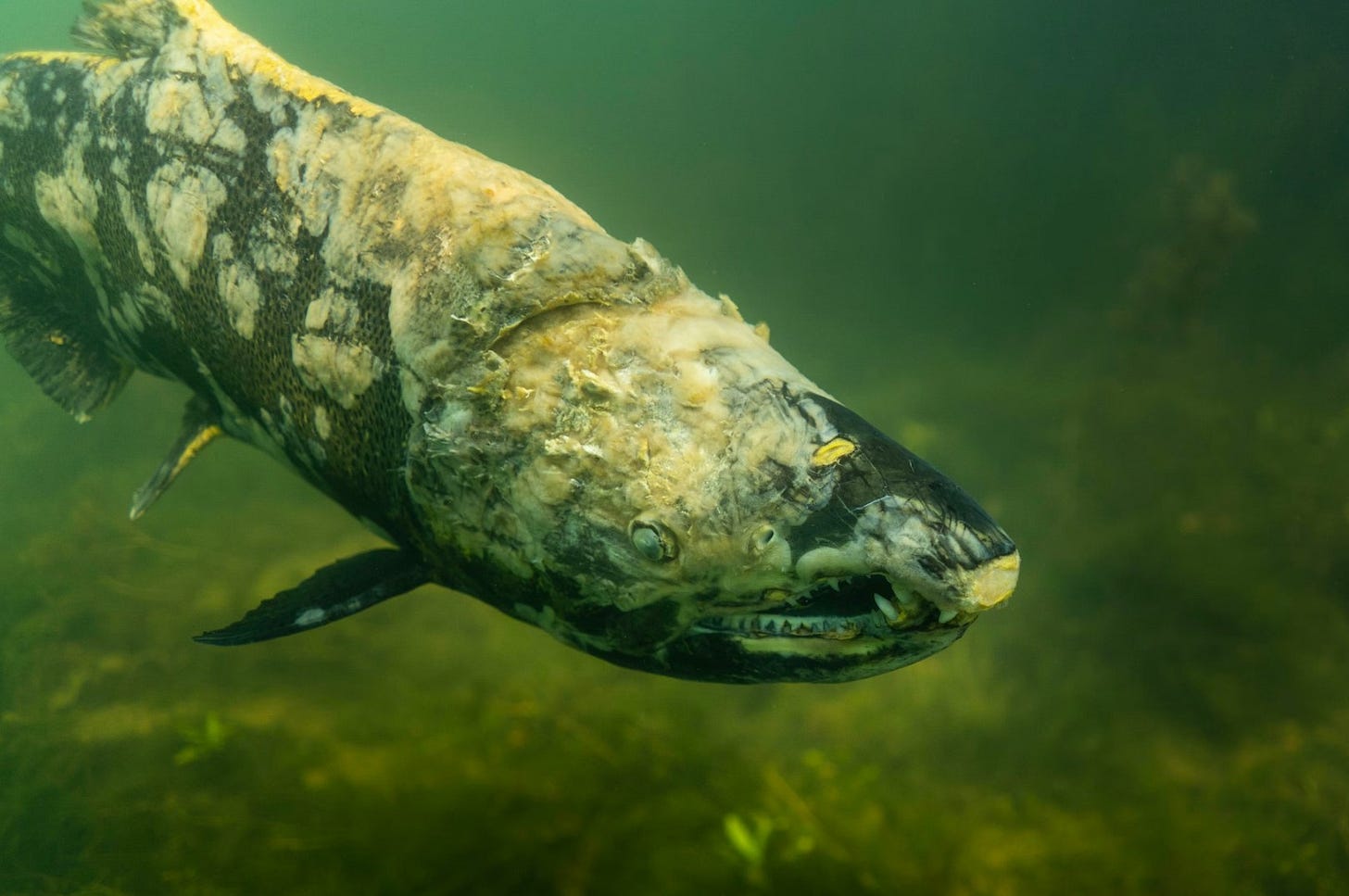I was recently fly fishing on the Snoqualmie river, and to my surprise, there were fish everywhere! But not as I expected.
Instead of being met with sprightly, silver spotted trout, I faced an army of zombie fish.
Chinook salmon are anadromous, returning to their home waters to spawn after 3-5 years at sea. More importantly, they return to their home waters to die.
First I smelled them, a putrid odor like cow manure and rotting vegetation. Then I saw them. The river banks were strewn with carcasses at various stages of decay. While those already perished were a sight to behold, it was those that were still swimming in the frigid mountain runoff that piqued my curiosity.
Their skins were covered in white and gray splotches. Some had exposed gills. Others were herniated, their entrails bulging into the cold current. Many appeared to be blind, occasionally bumping into my legs. What struck me was the weariness with which they swam — they seemed to long for a final rest after an arduous journey from the Pacific.
I’m writing about this because those Chinook are a poignant reminder that life and death are inextricably tied. As we get older our hair thins and our teeth weaken. Our joints creak and our muscles begin to ache. We develop cancers and diseases of the heart. We become blind and deaf. Eventually, our faculties of mind and body deteriorate to such a point where we have no other choice but to float quietly through the current of our remaining life.
So what’s the difference between us and the Chinook?
Nothing. Decay is simply happening faster to the fish and, as a result, strikes us as more visceral.
In a moment, standing in the corpse-filled Snoqualmie, I realized — I, too, am a zombie.
Happy Halloween!
For every day a little of our life is taken from us; even when we are growing, our life is on the wane. We lose our childhood, then our boyhood, and then our youth. Counting even yesterday, all past time is lost time; the very day which we are now spending is shared between ourselves and death. It is not the last drop that empties the water-clock, but all that which previously has flowed out; similarly, the final hour when we cease to exist does not of itself bring death; it merely of itself completes the death-process. We reach death at that moment, but we have been a long time on the way.
~ Seneca



